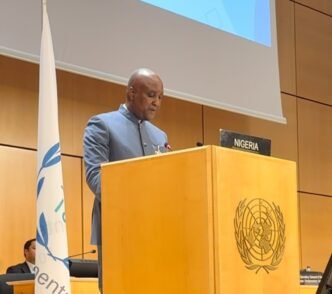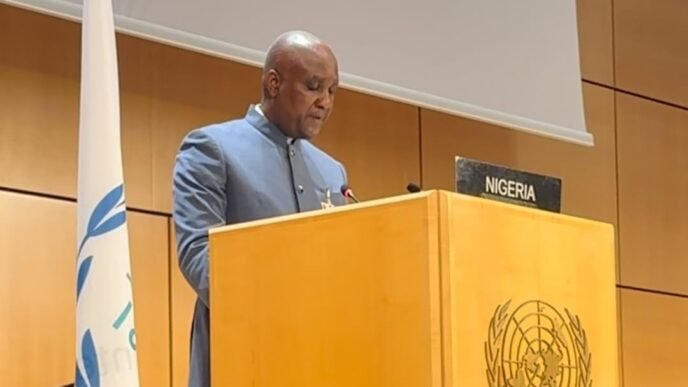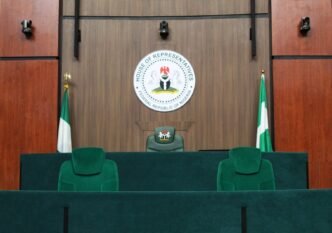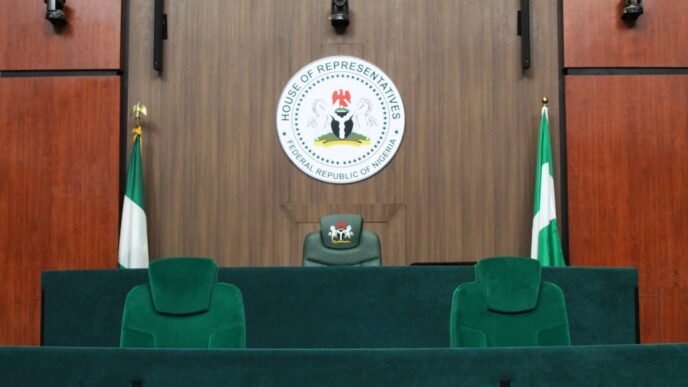HB. 1783– A BILL FOR AN ACT TO AMEND THE PROVISIONS OF THE CONSTITUTION OF THE FEDERAL REPUBLIC OF NIGERIA 1999 (AS AMENDED), TO MAKE PROVISION FOR CAPITAL TERRITORY (FCT) HOUSE OF ASSEMBLY AND FOR RELATED MATTERS. Bill Sponsored by Hon. Engr. Sesoo Ikpagher. Bill Progress: Committee Stage.
This Bill seeks to alter Sections 48, 49, 90 to 111 and 299 of the Constitution of The Federal Republic of Nigeria 1999 to make provisions for the establishment of a House of Assembly for the Federal Capital Territory
Amid ongoing discussions surrounding governance and representation in Nigeria, a significant piece of legislation, HB. 1783, has emerged from the House of Representatives. This bill is geared towards amending the 1999 Constitution of the Federal Republic of Nigeria to establish a House of Assembly specifically for the Federal Capital Territory (FCT), Abuja. This proposed development is poised to transform the political landscape of the FCT, promising enhanced local governance and improved representation for its residents.
The key provisions of HB. 1783 aim to amend various sections of the Constitution, notably Sections 48, 49, 90 to 111, and 299. These sections detail the composition and functioning of legislative bodies across Nigeria, specifically targeting the National Assembly and State Houses of Assembly. By focusing on these constitutional amendments, the bill emphasizes the necessity to decentralize legislative authority currently held by the National Assembly, which has long been the legislative body governing the FCT.
At the heart of HB. 1783 is the establishment of the House of Assembly for the FCT, which would enable residents to elect their own representatives to address local concerns and issues. This legislative body would mirror the structure and functions of the existing 36 state Houses of Assembly across Nigeria. Such a move is expected to empower residents, allowing them to have a direct voice in discussions that directly affect their lives. This represents a shift from the reliance on federal lawmakers, who often manage broader national agendas and may overlook localized needs.
Proponents of the bill argue that it is a crucial step towards enhancing democratic representation in the FCT. Currently, the residents of Abuja do not have direct representatives who legislate specifically on matters pertinent to their locality. Issues such as education, transportation, local economic development, sanitation, and municipal planning are often addressed at a national level, which can lead to ineffective solutions tailored to the unique needs of Abuja’s diverse population.
By empowering the FCT with its own legislative assembly, HB. 1783 promises improved local governance. The new assembly would be better positioned to swiftly respond to local challenges, creating laws and policies that are reflective of the community’s priorities. This localized decision-making process enhances the capability of the FCT Administration (FCTA) to implement more relevant and timely solutions to pressing issues faced by residents.
Additionally, the establishment of a House of Assembly for the FCT would strengthen Nigeria’s federalism. The bill aims to align the governance framework of the FCT with that of the states, promoting constitutional balance and institutional equity. In a nation with a federal structure, it is essential that all territories and states operate under a similar governance model, ensuring that no region is disproportionately represented or underserved.
In terms of accountability, the proposed FCT House of Assembly would also act as a critical oversight body for the FCTA. Currently, the administration operates without a direct legislative counterpart, which can lead to a lack of accountability in governance. By introducing a dedicated assembly, residents would have a clear mechanism to hold their leaders accountable and ensure that local government operates transparently and effectively.
The legislative progress of HB. 1783 has thus far been notable. It has successfully passed its second reading in the House of Representatives, indicating growing support for the initiative. The bill will now head to the Committee on Constitution Review for further examination and discussion.
For HB. 1783 to become law, it is essential that it receives the endorsement of at least two-thirds of Nigeria’s 36 State Houses of Assembly. Additionally, it must be approved by both the House of Representatives and the Senate, following the protocols outlined in Section 9 of the 1999 Constitution regarding constitutional amendments. This multi-step approval process emphasizes the weight of the bill and the importance of ensuring broad-based support across Nigeria’s legislative landscape.
The introduction of HB. 1783 is reflective of a broader desire among Abuja residents and stakeholders for greater autonomy and improved democratization in the governance of the FCT. Over the years, there has been a growing chorus of voices advocating for local representation, emphasizing that the unique identity and challenges of the FCT warrant a legislative body that is distinctly attuned to its constituents’ needs.
As this bill progresses in the legislative process, it has the potential to significantly reshape the governance framework of the Federal Capital Territory. Should it ultimately gain the required support and be signed into law, the creation of the FCT House of Assembly may well mark a historical turning point for democratic governance in Abuja, enabling residents to take charge of their legislative destiny and fostering a closer relationship between the government and the governed. The coming months will be critical in determining whether this initiative will come to fruition, impacting the lives of millions who reside within the FCT.













